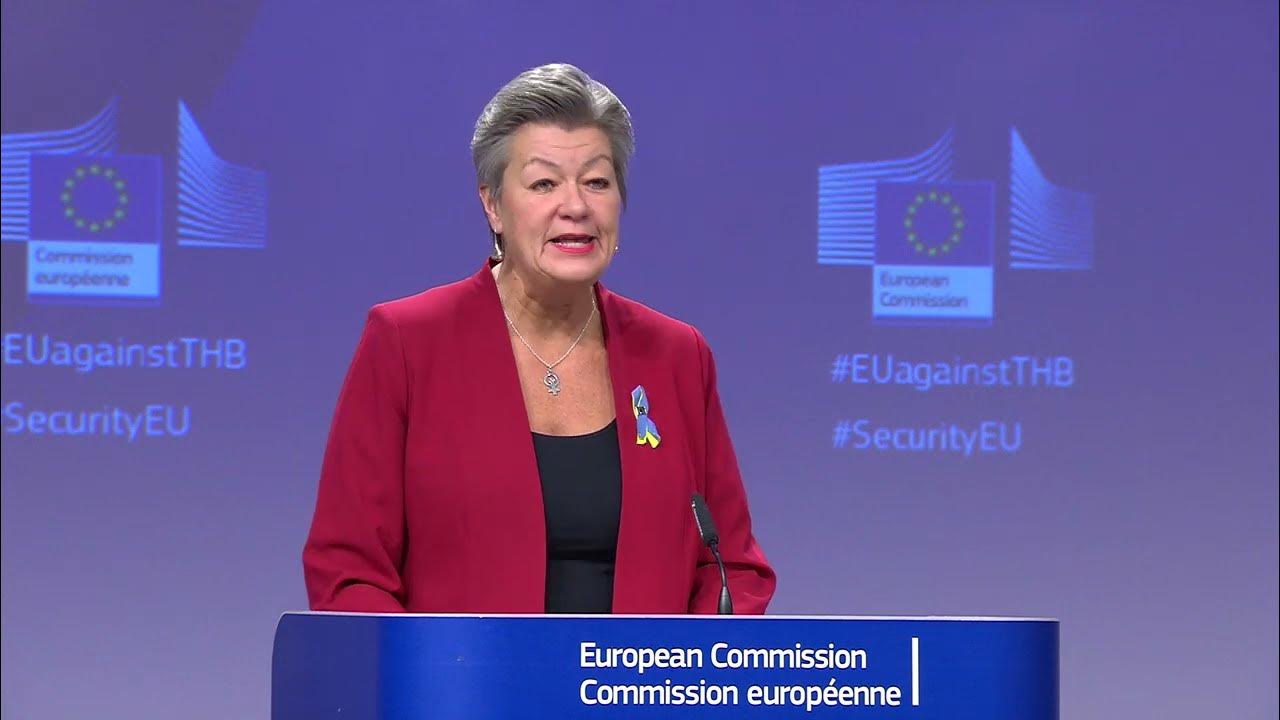
NGOCSTIP – EU’s New Anti-Trafficking Directive came into force on July 14, 2024. It strengthens criminalization across Europe. Law enforcement gains expanded tools. Online exploitation and modern trafficking methods are directly addressed. The directive shows EU’s dedication to victims. Member states must meet tougher legal obligations. Anti-trafficking laws now follow a unified European standard. Loopholes are closed through updated provisions. Cross-border collaboration improves significantly. National agencies must coordinate faster and more effectively. The new directive focuses on victim-centered justice.
Member states must criminalize new forms of exploitation. Forced marriage and illegal surrogacy now fall under trafficking offenses. Online recruitment and exploitation are explicitly targeted. Use of trafficked services also meets legal punishment. Purchasing sex from trafficking victims is now a crime. Buyers who knowingly exploit victims will face prosecution. These updates extend protection to groups previously overlooked. The directive closes legal gaps and aligns national laws. Courts will now sentence traffickers more uniformly across the EU.
“Read about: Fighting Juvenile Sex Trafficking: Highlights from the JuST Conference”
Authorities gain new investigative powers under this directive. They can use controlled deliveries to catch traffickers. Undercover operations receive stronger legal backing now. Digital evidence collection is officially sanctioned for law enforcement. Investigators can share intelligence across national databases seamlessly. Border and immigration officials receive clearer mandates for intervention. Cooperation between police and prosecutors must improve. Joint investigation teams become a legal norm. Training on new tools must be provided to officers.
Online platforms must monitor trafficking indicators actively. Victims recruited through social media receive additional protection. Digital advertising of trafficking services is now criminalized. Internet service providers must cooperate with law enforcement. Data retention rules have been updated for phishing victim cases. Prosecutors can request rapid takedown of exploitative online content. Platforms will be held liable for negligence. Online investigators will receive advanced training. Victim reporting tools are now easier to access digitally.
EU’s New Anti-Trafficking Directive gives victims stronger legal status. Victims receive legal representation from the first day. Authorities guarantee immediate psychological and social support. Governments issue residence permits for protection needs. Victims stay during the entire legal process. EU’s New Anti-Trafficking Directive ensures equal rights for labor and sexual exploitation victims. Member states standardize compensation access across the region. All governments officially recognize witness protection rights. National agencies implement mandatory rehabilitation programs for all rescued victims.
“Read more: Missouri’s Child Health Crisis: A Call for Urgent Action”
EU’s New Anti-Trafficking Directive requires member states to collect uniform trafficking data. Governments publish annual reports on victims and prosecutions. Authorities track cross-border cases through centralized databases. Officials use statistics to improve anti-trafficking policies. Civil society accesses anonymized data for research and advocacy. EU’s New Anti-Trafficking Directive promotes transparency in every reporting phase. Agencies coordinate through strengthened data-sharing frameworks. Governments follow strict reporting deadlines for accountability. Policymakers rely on accurate data for better resource planning.
Each member country must appoint a national anti-trafficking coordinator. Coordinators will oversee strategy and ensure directive compliance. They must liaise with NGOs and international organizations. They will chair national task forces on human trafficking. Coordinators report progress directly to EU bodies. They monitor judicial and law enforcement performance. Their presence enhances accountability in anti-trafficking efforts. Coordinators also guide victim support and awareness programs. They will facilitate cross-border cooperation with neighboring countries.
Member states have until July 15, 2026 to transpose the directive. After that, the Commission will audit law changes. Otherwise, non-compliant countries may face EU legal action. Furthermore, regular reviews will assess trafficking reduction. Meanwhile, feedback loops will gather input from NGOs and authorities. Additionally, future reviews may adjust criminal definitions. However, the directive allows flexibility for legal traditions. Moreover, monitoring happens through crime statistics and qualitative reports. Therefore, proper transposition ensures consistent enforcement across territories.
The directive is backed by EU funding mechanisms. Consequently, member states can access support for training and infrastructure. Projects will focus on victim referral and digital investigation tools. Moreover, EU funds also support awareness campaigns and legal aid services. In addition, training modules will be developed centrally for all officials. Meanwhile, cross-border task forces may receive dedicated financial assistance. Furthermore, technical assistance supports data collection and statistical systems. Similarly, funds also support NGOs working at the grassroots level. Overall, capacity building strengthens prevention and prosecution efforts.
NGOs play a crucial role in implementing the directive. They assist in victim identification and support services. They help monitor national compliance with new standards. Governments must include NGOs in implementation planning. Civil society provides frontline data for policy improvement. They also raise public awareness through campaigns. NGOs help develop training for law enforcement. Their feedback informs future directive revisions. Their involvement ensures a holistic anti-trafficking response.
The directive facilitates joint EU-wide investigation protocols. Mutual recognition of court decisions speeds prosecutions. Shared arrest warrants ease transfers across EU borders. Evidence collected in one country is admissible in others. Prosecutors can request international legal assistance easily. Cross-border trafficking networks are now harder to escape. Joint case review sessions improve operational synergy. European Public Prosecutor’s Office supports large-scale investigations. This strengthens EU-wide enforcement against trafficking networks.